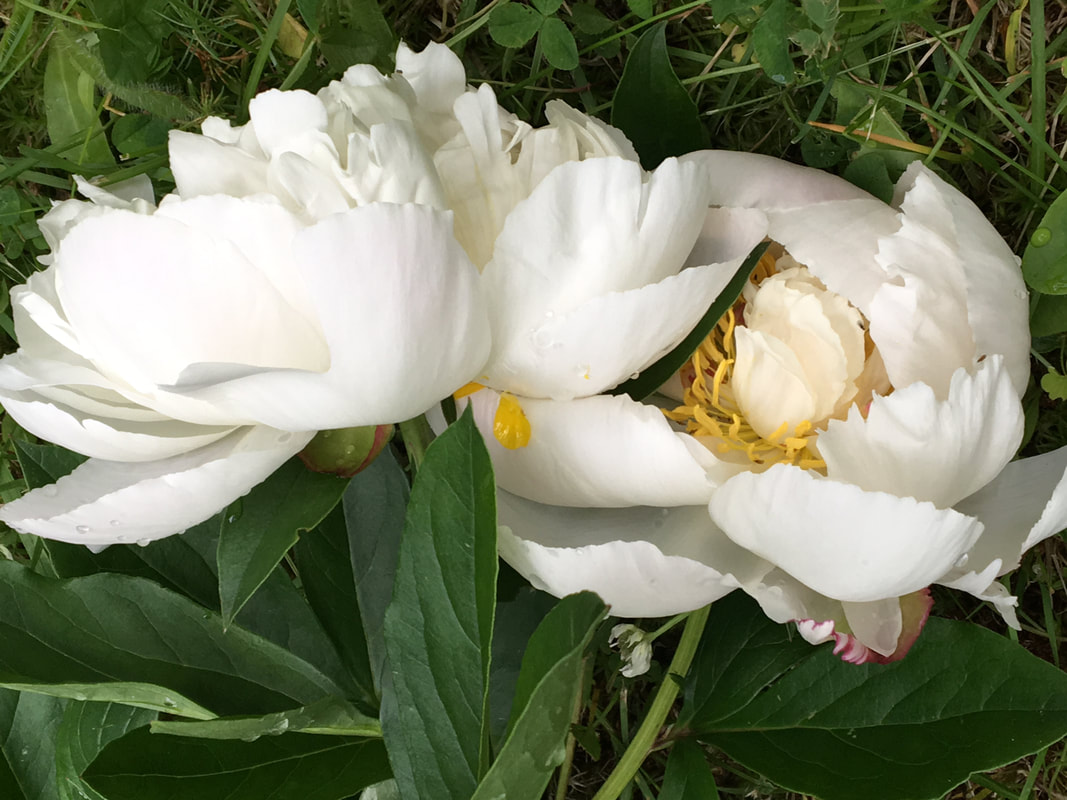|
I was going to write about the Richmond statues this week, and the writing and rewriting of history, which is what history is—an ongoing draft of a story from different points of view. But I decided instead to write about flowers. Not because, like my line-toeing ancestors, I don’t want to ruffle feathers. I do, in fact. Healthy feather-ruffling leads to conversation and greater understanding, and what we need more than ever right now is some patient listening and a good exchange of ideas. But I haven’t been in a position to patiently listen to why it makes sense to venerate the heroes of a coalition against which we were at war, many of whom believed in a system of ownership of and forced labor by other human beings. I would like to listen to someone in whose mind that makes sense. I am curious to know how that makes sense. I would like to listen openly rather than shut my own mind to this difference between minds.
Notable: By the time of the Civil War, slavery wasn’t confined to the Confederacy. The Union had slave owners, too. The border states of Maryland, Delaware, Kentucky, Missouri and West Virginia were slave owning, and they continued to be after Abraham Lincoln’s famed Emancipation Proclamation. The president declared the slaves within the Confederate states free, but left slave ownership intact in the useful, resource-rich border states that supplied the Northern army. He did what he thought the war effort demanded, and played his political cards. He went on record as saying, “If I could save the Union without freeing any slave I would do it; and if I could save it by freeing all the slaves I would do it; and if I could save it by freeing some and leaving others alone I would also do that.” Food for thought. Notable: In half of what I’ve read about Robert E. Lee, commander of the Army of Northern Virginia and perhaps the best-known general, North or South, of the American Civil War, he seems like a pretty good guy. By that I mean fair, morally put-together, and capable of great feeling for the young men he ordered into battle. Also, by marriage, a slave owner, and not necessarily a kind one. He married the daughter of George Washington’s adopted son who inherited the Washington family’s slaves (yes, that George Washington), and a year-and-a-half into the Civil War Lee freed them. Notable: They were free and the slaves in the Union’s border states were not. Food for thought. How we respond to the complexity of our fellow human beings, how we accommodate or damn them, is of great interest to me. But I was going to write about flowers. Why flowers? Because they’re beautiful, and when I tear them from the ground and place them in my house, they give me pleasure. Simple. I don’t have to accommodate or damn them. I don’t have to struggle with their complexity. I can just enjoy them, and more and more, as the turning of the world becomes less and less certain, or I should say, as the innate uncertainty of all life becomes more visible to our clouded eyes, or as someone recently said, as people become more and more themselves, we could use a little beauty, a little rest from confusion, conflict, loneliness and doubt. We could use a break from what we know we have to accept. Not right now, please. Five minutes more. Oh, take a look at those flowers! But the last word must go to Robert E. Lee who, it’s said, objected to the idea of raising Confederate monuments. He thought it wiser “not to keep open the sores of war but to follow the examples of those nations who endeavored to obliterate the marks of civil strife.” He would, it seems, advocate the toppling of the statues, including and especially his own.
2 Comments
Linda McMichael
8/6/2020 12:12:03 pm
I used to read the books that my father brought home from the library every week. One of them, Antietam Creek, impressed my teenage sensibilities greatly. The protagonist was a Confederate soldier, and the focus of the historical novel was upon the southern forces and their loved ones. Then I read GWTW, which reinforced my sympathies, if not my politics, with the Ole South. I should also mention that I was born on Marse Robert's birthday. I figured, from the statues and the photos and the tales, that he was a good man whose greatest mistake (and sin, if you like) was choosing Virginia over the USA when he was asked to lead the Union forces and refused. No one, however, can cast aspersions on his beautiful steed, Traveler. Too bad we can't leave Traveler on the plinth and just remove Robert E. Lee's part of the statue.
Reply
8/9/2020 02:35:23 pm
I love these two sentences: "How we respond to the complexity of our fellow human beings, how we accommodate or damn them, is of great interest to me. But I was going to write about flowers." I find it fascinating and also painful that our dueling human habits of codependency and disconnection are escalating in intensity in this COVID moment. We are ever more interdependent, inter-being, as Thich Nhat Hanh has described in his inimitable way. When I notice myself demonizing anyone, I assume that it is self-loathing being projected onto others. Not helpful. Better, as you say, to enjoy the beauty of all the kinds of flowers in our lives.
Reply
Leave a Reply. |
AboutA place to discuss writing or anything on your mind. All visitors are invited to join the conversation by commenting on posts, asking questions, and joining the newsletter below for even more opportunities to connect and converse! Archives
April 2023
Categories |


 RSS Feed
RSS Feed